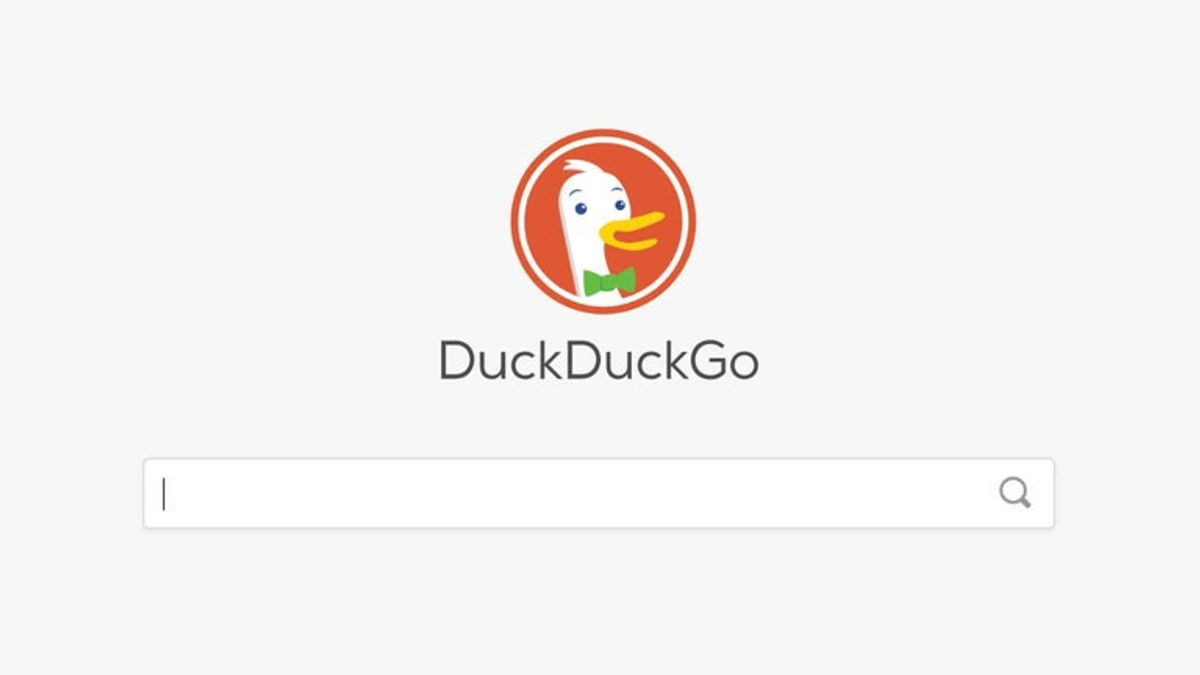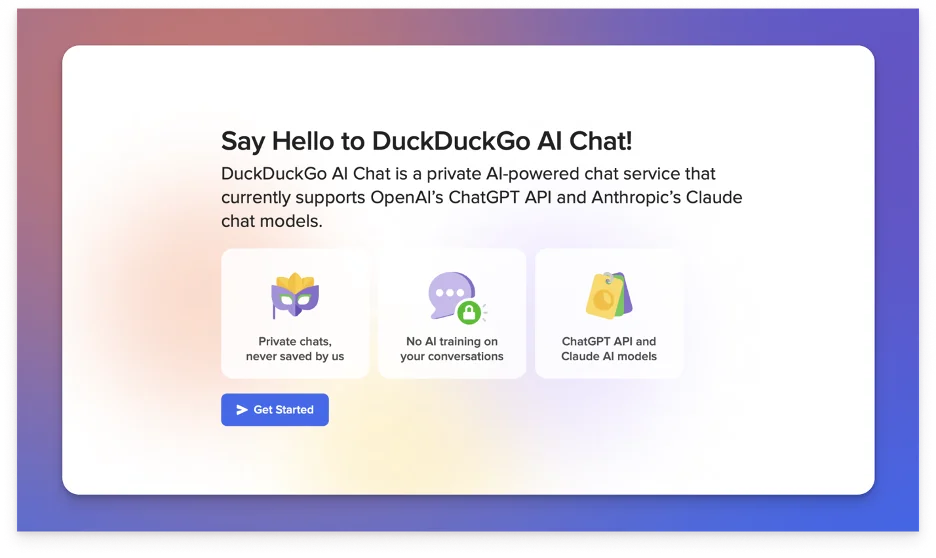The Great Google Migration Series: Part 2
A Product Management x Sociology Lens on DuckDuckGo, Gen Z, and the Quiet Rebuilding of Trust in Search
As Google continues to play defence to upkeep its dominant share of being the number 1 search engine in the global market. Let’s explore a slow, meticulous exodus from Google Search into the arms of… well, the growing list of alternatives out there.
My previous article lightly touched on how ChatGPT is slowly replacing Google. As a follow-up, I took that research a step further and asked the generation leading this shift directly. Through a video, I asked Gen Z one simple question: why did you stop using Google? And their replies were interesting:
Google is a bad company
Bing already integrates with ChatGPT
Mixing different platforms depending on the question
Undoubtedly, these are quite a small sample of anecdotal comments. However, they do highlight an interesting shift of priorities and behaviours as to what people are expecting from these search engines and what would they rather experience?
So what are the major alternatives, and why are people turning to them? Today’s search isn’t just happening on traditional engines like Bing or DuckDuckGo. It’s happening on Reddit. On Instagram. On TikTok. These platforms are increasingly where people go to find and trust information.
But here’s the thing: the way these platforms are designed, how they surface content, what metrics they optimise for, and how they monetise directly impacts whether they’re truly meeting these new user expectations or simply repackaging the same limitations in a different format.
This piece continues a series on the emerging behaviour changes around how people find and consume information. For this specific piece, I’m focusing on the alternatives that caters to a very specific niche: DuckDuckGo. We’ll break it down through both a sociological and product lens, looking at what makes it appealing, what behaviour shifts it points to, and how it stacks up against the expectations people now bring to search. Using user comments, market trends, and product signals, I’ll explore why some are choosing it over Google and whether it actually delivers on what they’re looking for.
DuckDuckGo: A Way to “Stick it to the Man”?
Why Are Users Migrating?
DuckDuckGo has been around since 2008 and, it handles about 3 billion searches a month today. That makes it the 5th most popular search engine in the global market. Its core appeal lies in privacy. It doesn’t track search history or browsing behaviour. And it also blocks hidden website trackers, cuts down on targeted ads, and prevents annoying pop-ups. These initiatives to prioritise security and neutrality especially resonate with younger users. With nearly half its users under the age of 34 with a strong skew towards the younger male demographic with 73.3%.
And with Google’s high-profile privacy controversies and distrust of Big Tech (such as Google’s Project Nimbus) have accelerated migration to DuckDuckGo, as users seek alternatives that don’t monetise personal data. Here’s a comment from my video that stood out:
As a 20y/o gen Z, f google. I switched to safari and duck duck go after 7th october and announcement of project Nimbus. Even wiki is biased. Also we are lazy. Earlier i didn't use ai cause it would have beniffited google and meta…
How It Makes Money
So how would DuckDuckGo get its revenue? While Google’s 77.8% main source of revenue relies heavily on tracking user behaviour to serve hyper-personalised ads, DuckDuckGo primarily earns revenue through keyword-based (contextual) ads that appear alongside search results.
These ads are based solely on the search query at hand, not on any personal data or search history. For example, a search for “lawn mower” triggers ads for lawn mowers, but DuckDuckGo does not track or store user data to target these ads.
Additionally, DuckDuckGo earns a commission through affiliate programs with sites like Amazon and eBay: if a user clicks an affiliate link and completes a purchase, all without sharing any user data. And for the most part, it’s been working for them. They’ve been profitable since 2014 and has been earning revenue of over $100 million per year. Sure, that’s a fraction of Google’s $200 billion empire. But it’s stable, intentional growth that allows DuckDuckGo to keep operating on its own terms.
What Drives Their Feature Development
Let’s put on our product lenses: what KPIs might DuckDuckGo care about, and how does that shape what they build?
With a core audience that values privacy above all, PMs need to protect that trust. But expectations are changing. People want smarter, faster results, without giving up control. DuckDuckGo’s challenge now is keeping its edge with privacy-first users while finding ways to meet rising demand for AI-powered search. All while making sure the ROI stays positive.
The ad and affiliate model incentivises DuckDuckGo to maximise search volume while upholding privacy. This means investing in features and initiatives that keep users coming back, such as:
DuckDuckBot: DuckDuckGo’s own web crawler, which supplements results from Bing, Wikipedia, and other sources to ensure relevant, unbiased search outcomes without personalisation
Privacy Tools: To always ensure secure user sessions, the has to continuously invest and update tracker blocking, encrypted connections, and a browser extension that blocks third-party trackers.
Community Feedback: To stay aligned with their users, DuckDuckGo leans into open-source efforts like Instant Answers and DuckDuckHack. These projects let developers directly shape the product: submitting answers, fixing bugs, and improving features.
DuckAI: A way to match every other search engines out there. DuckDuckGo launched a private, anonymous AI chatbot service that does not require users to create an account and their data is not used for training.
What are the Important KPIs to Track
Now that we’ve got a sense of what features are most important, what does success actually look like for DuckDuckGo? Here are some of the key metrics product teams are likely watching, and how they shape what gets built.
Search Volume - This measures how many searches people perform daily or monthly. For example 3 billion searches a month. Distinctly related to DAU and MAU which counts the unique users who engage with the product daily or monthly. The search volume reflects user growth, awareness, and general engagement. This KPI directly measures DuckDuckGo’s success as it gauges direct growth on whether people are using the platform.
Ad-Click Through Rate (CTR) - DuckDuckGo would want to generate revenue to continue its operations, so they have to track how often users click on the ads from their search results. Particularly, if the users are not being tracked then how many ad impressions have they come across in order to click one.
User Retention - This measures measures how many users continue to use DuckDuckGo over time, returning to the platform for repeated searches and engaging in multiple sessions. It reflects loyalty and satisfaction; a sudden drop means there might be bugs, bad user experience, or strong competitors. On the flip side, if retention increases then it’s a good idea to analyse any new features or improvements that might have been deployed within the time period, and double down on that.
Feature Adoption - While not always possible, the rule is to have a KPI per main feature that’s being deployed in order to validate whether their investment was worth it. Now there’s a couple of ways to measure this including: % of users who tried it and regularly uses it, % of user base that has used the feature, user feedback & ratings, and many more. High adoption mean people loved it. Whereas low adoption indicates some friction in onboarding, weak discoverability, or simply a mismatch with user needs, and that’s the PM’s cue to iterate.
Product x Sociology
DuckDuckGo’s leverages privacy and security as its primary differentiator. Its rise from 0.11% to 0.54% of global search share reflects a sociological shift: users, especially Gen Z, are prioritising ethics over convenience. As privacy continues to be a contention especially with how Google is facing legal problems with potential fines up to 4% of Google’s global annual revenue. DuckDuckGo becomes a safe haven for rebellion against Big Tech’s data-driven dominance. Comments like “f Google” highlight a generation rejecting platforms tied to controversial projects or perceived biases, seeking alternatives that feel neutral and trustworthy.
From a product lens, DuckDuckGo’s challenge is scaling this niche without alienating its core audience. Its contextual ad model and AI features like DuckAssist meet demands for speed and relevance, but staying privacy-first limits personalisation, a strength of competitors like Google. KPIs like retention and adoption reveal whether users value this trade-off or drift to AI-driven platforms like Bing or Yandex.
Additionally, the 73.3% male skew suggests a need to broaden appeal. If they would like to broaden their users to get more female users, they might want to initiate A/B testing that appeals to that demographic. For example, research shows women are more likely to engage with visual, aesthetic content that emphasises storytelling, inspiration, and community. So they can consider adding visually rich tutorials, infographics, interactive stories, or community galleries. And using the KPI of feature adoption and engagement metrics by gender to see what resonates most.
This migration highlights the change of user expectation around search engines: it’s not just about answers but about trust in the actual company and their processes. DuckDuckGo’s growth, though modest, shows that for some, “sticking it to the man” is worth a less polished experience.
What’s Next?
As search evolves, the question isn’t just “Can I find the answer?” but “Do I trust the source?” DuckDuckGo’s niche proves that for some, privacy is the ultimate truth. Will it cross the chasm to mainstream adoption, or remain a rebel’s choice? That’s really up to time to tell. Right now, we see that DuckDuckGo’s privacy concerns attract people to get away from the dominant search engine, but Google’s politics and stance are also giving people reasons to find other ways to search a topic.
DuckDuckGo isn’t trying to beat Google away from its throne, sometimes it’s simply giving a refuge to users who are demanding search that aligns with their values. DuckDuckGo’s privacy-first model, fuelled by $100 million in ad and affiliate revenue, caters to a growing niche wary of Big Tech. Its features, from DuckDuckBot to DuckAssist, balance relevance and security, while KPIs like search volume, CTR, retention, and adoption ensure it meets user needs without betraying trust.
Google’s ecosystem and AI advancements (e.g., Gemini) maintain its dominance, but cracks are forming. The next pieces in this series will explore alternatives with better edges to take Google off of its pedestal: AI-driven platforms ChatGPT, Reddit’s authentic communities, and TikTok’s visual discovery engine. Not only are these platforms strong enough in their own lane, they provide another perspective on how users receive information as they change what “search” even means.








This post is excellent, Paola! I also like your idea of turning it into series. 🤗👏
I'm happy to see DuckDuckGo getting some well-deserved love for its privacy and search capabilities. Looking forward to more articles in your series, @Paola Santiago 😊